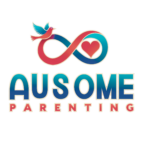The transitioning journey from adolescence to adulthood is an exciting yet challenging phase for every family, but it carries unique nuances when guiding an autistic teen. As parents, caregivers, or educators, the focus is on equipping these teens with tools and strategies to navigate adulthood with confidence and independence. This is a story of preparation, growth, and triumph over challenges.

Understanding the Challenges in Transitioning to Adulthood
Every transition begins with understanding the obstacles. Sarah, a 17-year-old aspiring veterinary technician, dreams of working with animals. Yet, her struggles with social interaction and sensory sensitivities often leave her overwhelmed in unfamiliar environments. Her parents, Mark and Lisa, oscillate between pride and anxiety as they prepare her for this major life phase. They understand the hurdles—difficulty in interpreting social cues, heightened sensitivity to sensory inputs, and managing the stress of new situations.
Then there’s Jake, a 19-year-old who encountered sensory overload at his first job in a bustling retail store. With guidance from a job coach, Jake and his employer implemented accommodations like noise-canceling headphones and scheduled breaks. These adjustments transformed his experience, helping him excel and gain self-confidence.
Stories like Sarah’s and Jake’s highlight the critical need for tailored support and understanding to address these unique challenges head-on.
Building Essential Life Skills
Life skills are the foundation of independence. Consider Emily, an 18-year-old determined to cook for herself. Her parents started by teaching her to make simple sandwiches, gradually progressing to more complex meals using visual recipe cards. Months later, Emily hosted a dinner party, a proud moment symbolizing her journey toward independence.
Developing Self-Care Routines
Personal hygiene and self-care are fundamental. Establishing routines can begin with visual schedules for morning and bedtime tasks. Products tailored to sensory preferences, like unscented soaps or ergonomic toothbrushes, can make this experience less daunting. Emily’s story reminds us that small, consistent steps build confidence and capability.
Managing Time and Money
Time management and financial literacy often require structured teaching. Introduce calendars or digital apps to track appointments and tasks. Practical experiences like creating simple budgets and handling online banking empower teens to take charge of their daily lives.
Nurturing Culinary and Household Skills
Teaching kitchen safety and food preparation instills confidence. Similarly, maintaining a clean living space—like managing laundry or fixing minor household issues—fosters self-sufficiency. These are essential life skills that shape their ability to live independently.
Developing Social Skills for Adulthood
Social interactions can be daunting, but they’re not insurmountable. Alex, a teen who once struggled to make friends, thrived after joining a social skills group tailored for autistic individuals. Through guided practice, Alex learned how to start conversations, read social cues, and resolve conflicts. These experiences helped him form lasting friendships and navigate relationships with greater ease.
Teaching interpersonal communication—from active listening to understanding body language—is transformative. Encourage participation in interest-based clubs or structured groups to foster friendships. Discuss topics like boundaries and consent to prepare them for romantic relationships, should they choose to explore this aspect of adulthood.
Education and Career Planning
Maria’s story illustrates how nurturing special interests can pave the way to fulfilling careers. Her fascination with computer programming led to coding classes and an internship at a tech company. Supported by workplace accommodations, Maria excelled and transitioned into a full-time position, a testament to the power of aligning strengths with opportunities.
Explore educational paths that match your teen’s interests and strengths. Research colleges with robust support services or vocational training programs. Apprenticeships and career assessments can help them set achievable goals. Equip them with resume-building and interview skills while addressing the disclosure of autism and workplace accommodations when necessary.

Navigating Transportation and Healthcare
Transportation is a key step toward independence. Tom’s parents created a visual guide to help him navigate public transit. Gradually, Tom grew confident commuting to work independently. For others, driving lessons or safe ride-sharing options might be more suitable. Tailored solutions ensure autonomy in mobility.
Healthcare management is another critical area. Lisa, a 19-year-old, transitioned to managing her own medical appointments with the help of a binder containing her medical history. Her parents role-played doctor’s appointments with her, empowering Lisa to communicate effectively with healthcare providers. Building these skills early ensures lifelong self-advocacy and health management.
Legal and Financial Preparation
Legal and financial planning provides security. Families often weigh guardianship against supported decision-making to determine what’s best for their teen. Tools like special needs trusts or ABLE accounts can safeguard financial stability without jeopardizing eligibility for benefits.
The Johnson family’s proactive approach serves as inspiration. By consulting a financial advisor, they set up a trust and an ABLE account for their son Michael, ensuring his financial independence while preserving access to essential resources.
Embracing Technology for Support
Assistive technology enhances independence. David uses a smartwatch for reminders and a tablet to communicate his needs during sensory overload. These tools, along with smart home devices, empower individuals to navigate their day-to-day lives with greater ease.
Online safety is equally important. Teach teens how to evaluate information critically, safeguard their privacy, and handle cyberbullying. Technology can be both a tool for growth and a source of risk, requiring guided exploration. In my book “Ausome Connections” I expand the whole chapter about safety rules of online communication.
Emotional Preparation for Families
The transition to adulthood is an emotional journey for both teens and their families. Open conversations about fears and anxieties help build trust. Celebrate milestones, no matter how small, to reinforce progress.
The Martinez family’s journey with their daughter Lucia exemplifies this balance. Counseling sessions helped them manage their anxieties while respecting Lucia’s independence. They celebrated her achievements, from making her first friend to succeeding in college, fostering confidence on all sides.
Creating a Transition Timeline
Starting early makes a significant difference. By age 14, incorporate transition goals into Individualized Education Programs (IEPs). The Wilson family’s five-year plan for Alex—from mastering laundry to applying for college—offers a roadmap for structured preparation. Flexibility is key, allowing adjustments as needed.
Conclusion
Transitioning to adulthood is a journey of growth, learning, and resilience. By fostering essential life skills, embracing self-care, and tailoring support to your teen’s needs, you can empower them to step into adulthood with confidence. Celebrate their successes and remain their anchor as they navigate this exciting phase of life.
FAQ
What are some of the key challenges faced by autistic teens transitioning to adulthood?
Autistic teens face various challenges when transitioning to adulthood. They may struggle with shifting from high school to college or work. Social skills and communication can be difficult for them.
Managing anxiety and stress during this period is also challenging. Developing self-advocacy skills and adapting to less structure in adulthood can be tough.
How can I help my autistic teen identify and foster their strengths, interests, and skills?
Observe and discuss your teen’s unique abilities and passions. Encourage them to explore hobbies and activities that match their interests. Support them as they discover their strengths and consider potential career paths.
What should be included in a comprehensive transition plan for my autistic teen?
A good transition plan should set realistic goals and involve your teen in decision-making. It should address independent living skills and post-secondary education options. The plan should also cover employment preparation and social skills development.
How can I foster independence in my autistic teen’s daily living skills?
Encourage your teen to take on household chores and responsibilities. Teach them self-care routines and promote financial management skills. Break down complex tasks into smaller steps and provide support as needed.
What are some post-secondary education options for autistic young adults?
Research colleges with support services for autistic students. Consider vocational training and trade school programs. Some schools offer specialized programs like peer mentoring and tutoring for autistic students.
How can I help my autistic teen prepare for employment and career success?
Identify job opportunities based on your teen’s strengths and interests. Help them develop soft skills and workplace etiquette. Encourage internships, volunteering, and part-time work experiences.
Work with vocational services and job coaches to ensure proper support. Collaborate with employers to provide necessary accommodations for your teen’s success.
What resources and support services are available for autistic adults?
Connect with local autism organizations and support groups. Access government benefits and services for adults with autism. Explore options like Medicaid waivers and vocational rehabilitation services.
Look into job placement programs and independent living services. Consider continuing education opportunities tailored to autistic adults’ needs.


